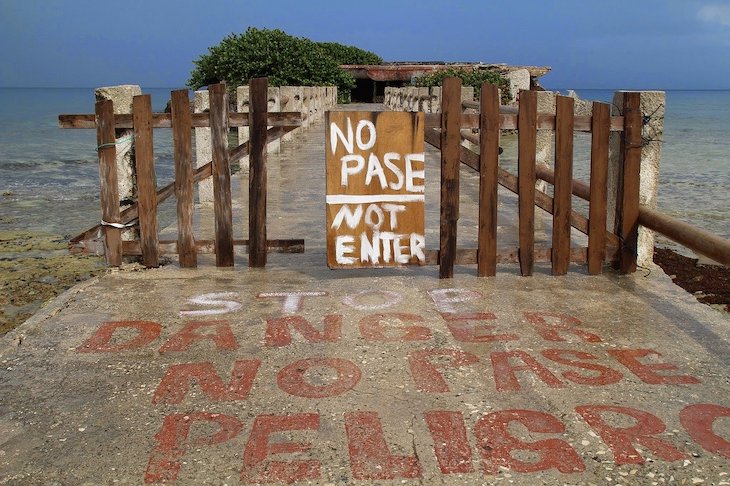“Everybody knows that pestilences have a way of recurring in the world, yet somehow we find it hard to believe in ones that crash down on our heads from a blue sky. There have been as many plagues as wars in history, yet always plagues and wars take people equally by surprise.” — Albert Camus, The Plague
Now that the moment is at hand, I don’t want to do what’s next. I just have no interest. None. I’m thoroughly ready for this whole Covid-19 thing to be over, and to get back on with my life. But it’s not over. The beginning of it isn’t even over.
I live on a little ranchette just north of Austin, TX, and my day job for the past year and a half has been to do the “prepper” thing and writing about it. I have a lot of food, plenty of water, and (thanks to our extensive gear reviews) enough gear to outfit a small army of apocalypse dwellers. I have no major medical conditions, nor does my family. I’m blessed with enough of a cash cushion that we can afford to bunker down for an extended period. I even have plenty of guns and ammo. In short, I’m ready for full-on doomsday, and however bad this pandemic gets, it won’t be doomsday. The lights will still work, there will still be groceries, and I’ll still be able to get on social media — so I won’t even need the stacks of tarps, paracord, solar panels, and matches that litter my office.
I say all this not to brag, but to point out that despite the fact that I and my family are exceptionally well prepared for whatever crazy turn this Covid-19 situation takes, I’m having a really hard time with the notion that we could and probably should be confined to our property as soon as next week.
I feel like a weirdo, or some Jim Jones character. Being “that guy” that everyone knew was a prepper wasn’t weird for me. But actually closing the door and hunkering down to do the kind of social isolation that’s our only hope for stopping SARS-Cov-2 from overloading our healthcare system? That’s weird.
So if I’m having such a hard time facing what needs to be done, and getting ready for exactly this type of scenario is my full-time job, then I have a lot of sympathy for the great many people who are in total denial that Covid-19 actually a big deal.
But the social distancing that my family is about to engage in does have to be done, by as many Americans as possible, as quickly as possible, in order to flatten the curve and ensure that our healthcare system has the capacity to deal with this outbreak. The hospital bed that I or my wife might take up can and should be used by someone who didn’t have the resources or flexibility to self-isolate like us.
To help others make the transition that my family has made, here are some things I’ve learned in my time as a professional prepper about the psychology of moments like this, and what it takes to get through them with your health and sanity intact.
Normalcy bias is real
Wikipedia defines normalcy bias as follows: “Normalcy bias, or normality bias, is a tendency for people to believe that things will always function the way they normally have functioned and therefore to underestimate both the likelihood of a disaster and its possible effects.”
My own familiarity with the concept of normalcy bias from the worlds of investing and prepping is doing two important things for me right now:
- I recognize that bias in myself, so that sense of surreality and weirdness that I’m experiencing as I wrap up our preparations this week is not a red flag for me or an indicator that I’m actually a nutter and am doing something crazy. Rather, I can say, “this is my normalcy bias kicking in, and I have to ignore it and just get this really strange and unusual stuff done.”
- I recognize that others in my social network are deeply in the grip of this very typical, very human bias, so I’m able to not take their scoffing or criticism personally. When someone on my Facebook feed accuses me of participating in a media-driven mass delusion, it rolls right off me, because I immediately see their (very normal) reaction for what it is. I’m also able to suspend judgement about their intelligence, politics, news reading habits, and so on, because the denial they’re displaying has nothing to do with any of that (it really doesn’t!) and everything to do with normalcy bias.
If this is your first time hearing about this term, Google and spend some time reading about it, because it will help you make sense of the country’s general indifference in the face of the terrifying scenes out of China, Italy, and other places.
You have to “panic” early
It’s a lesson that too many of us in the southern states re-learn every time there’s a hurricane about to hit the Gulf Coast: when it comes to disasters, early is on-time, and on-time is too late. Avoid the long lines, empty shelves, and panicked people by being early.
What this means in practice is that only the crazy people — the ones who are willing to do what nobody else in their circles is currently doing — are actually prepared when disaster strikes. If you’re not acting out of sync with most of the rest of your social circles, then you’re going to be in big trouble when everyone figures out it’s time to get ready.
Think about this as you prepare this week, and know that the fact that you’re the only one taking these drastic steps isn’t a sign you’re wrong — it’s a sign that you’re on time and everyone else is late.
Life and health are more important than stuff
My wife has a thriving therapy practice, and she really doesn’t want to stop work and stay home. Her clients need her, and she also has office rent, health insurance, and other bills to stay current on. But as we prepare this week for her to shut all that down for a while, I keep reminding her (and myself) of a lesson I learned from prepper guru and survivor of the Bosnian War Selco Begovic: when it comes down to picking between your life and your stuff, ditch the stuff.
Selco’s book is a really, really dark account of life in a modern besieged city during a civil war, and he repeats one important lesson over and over again: “Things are not worth your life.”
At one point in the book, he tells the story of a local tough guy who owned a few cafes and had a “crew” that was involved in organized crime. Sometime during the siege, a bigger, more organized group confronted him, and he just folded — he sold all his cafes to this new group, and was left with nothing until after the war when he was able to recover some of it in the courts.
A few years after it was all over, Selco asked him why he had folded so easily instead of arming up his crew and fighting for his livelihood. His answer: “Every time they were stronger than me; I simply had to let it go.”
I think about this story lately, and I repeat its lesson to those I’m close to. In disasters, you sometimes have to make a choice between risking your health and safety, and walking away from money and possessions that you’ve worked really hard for. The best choice is always to do like Selco’s gangster buddy, and just let that stuff go in order save your life.
So many of us are going to face a choice like that in the coming weeks and months. And to everyone who stands at such a crossroads, I ask the question Selco asks: “Do you really want to die just to hold on to things?”
In the case of Covid-19, you may be at relatively low risk of dying. But in some cases the virus leaves people with permanent organ damage. Or, even if you’re still not concerned with your own health, do you want to get it and then spread to a friend or family member who it may kill or injure?
Conclusion
I don’t have a crystal ball, but I can look at the news out of countries where this virus is spreading and get a good idea of what we may be in for. It won’t be fun, and we will all lose some things (and possibly some people) over the coming year.
But we all have to spend this week getting read for the explosion in Covid-19 cases on US soil, and that means starting with the steps outlined in our coronavirus guide. Don’t just do these things, but do them early. Be that oddball in your social circles who gets out ahead of this, so that you and yours are ready for whatever happens. Don’t let normalcy bias, the stigma of being early, and attachments to things stop you from doing what needs to be done.


You are reporting the comment """ by on